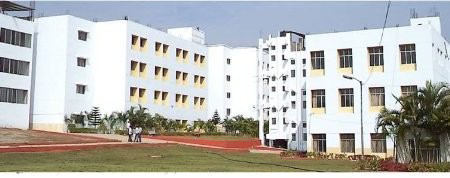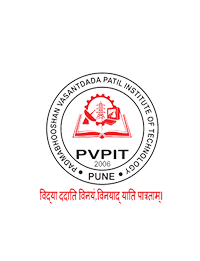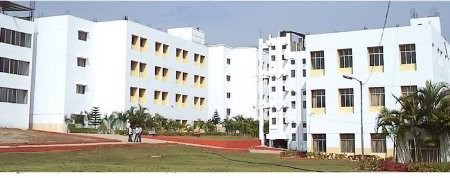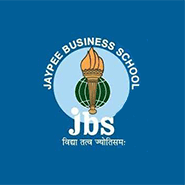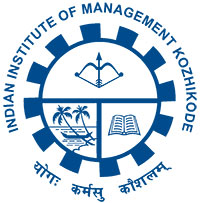Computer Engineering
Computer Engineering can be defined as the technology and science designing, constructing, implementing, and maintaining hardware and software components of contemporary computing systems and equipment that are operated, and monitored through a computer.
Program Educational Objectives (PEO)
Have abilities for successful professional career.
Internet of Things: Have an ability to address real life problem using modern tools and techniques.
Information security: Have an ability to build enterprise for betterment of society ethically.
Program Specific Outcomes (PSO)
Computer/Operating System: Understand the basic components of a computer, including CPU, memories, and input/output, design and their organization. Ability to understand the principles , administration and working of Operating systems
Networking: Develop solutions for networking and security problems.
Software development: Ability to understand the structure and development methodologies of software systems. Possess knowledge of software design process.
Database: Provide and implement database solutions to an information technology problem.
Computing: Ability to apply mathematical methodologies to solve computation task, model real world problem using appropriate data structure and suitable algorithm.
Program Outcomes (PO)
Engineering knowledge: Apply the knowledge of mathematics, science, engineering fundamentals, and an engineering specialization to the solution of complex engineering problems
Problem analysis: Identify, formulate, review research literature, and analyze complex engineering problems reaching substantiated conclusions using first principles of mathematics, natural sciences, and engineering sciences.
Design/development of solutions: Design solutions for complex engineering problems and design system components or processes that meet the specified needs with appropriate consideration for the public health and safety, and the cultural, societal, and environmental considerations.
Conduct investigations of complex problems: Use research-based knowledge and research methods including design of experiments, analysis and interpretation of data, and synthesis of the information to provide valid conclusions.
Modern tool usage: Create, select, and apply appropriate techniques, resources, and modern engineering and IT tools including prediction and modeling to complex engineering activities with an understanding of the limitations.
The engineer and society: Apply reasoning informed by the contextual knowledge to assess societal, health, safety, legal and cultural issues and the consequent responsibilities relevant to the professional engineering practice.
Environment and sustainability: Understand the impact of the professional engineering solutions in societal and environmental contexts, and demonstrate the knowledge of, and need for sustainable development.
Ethics: Apply ethical principle and commit professional ethics and responsibilities and norms of the engineering practice.
Individual and team work: Function effectively as an individual, and as a member or leader in diverse teams, and in multidisciplinary settings.
Communication: Communicate effectively on complex engineering activities with the engineering community and with society at large, such as, being able to comprehend and write effective reports and design documentation, make effective presentations, and give and receive clear instructions.
Project management and finance: Demonstrate knowledge and understanding of the engineering and management principles and apply the set one’s own work, as a member and leader in a team, to manage projects and in multidisciplinary environments.
Life-long learning: Recognize the need for, and have the preparation and ability to engage in independent and life-long learning in the broadest context of technological change.
conputer network.
Mechanical Engineering
Mechanical Engineering can be defined as the technology and science designing, constructing, implementing, and maintaining hardware and software components of contemporary computing systems and equipment that are operated, and monitored through a computer.
Program Educational Objectives (PEO)
Have abilities for successful professional career.
Have an ability to address real life problem using modern tools and techniques.
Have an ability to build enterprise for betterment of society ethically.
Program Specific Outcomes (PSO)
An ability to design solutions for thermal, hydraulic systems, design components and production processes that meet the specified needs with team work and management skills for safety, societal and environmental aspects through lifelong learning
An ability to use modeling and analysis software such as NX, Creo, CATIA, ANSYS etc. technologies necessary for obtaining quick, economical and accurate solutions of engineering problems.
An ability to design electromechanical and automation systems in multidisciplinary environments through better communication
Program Outcomes (PO)
Apply knowledge of mathematics, science and engineering to analyze, design and evaluate mechanical components & systems using state -of-the-art IT tools.
Analyze problems of mechanical engineering including thermal, manufacturing and industrial systems to formulate design requirements
Design, implement, and evaluate mechanical systems and processes considering public health, safety, cultural, societal and environmental issues.
Design and conduct experiments using domain knowledge and analyze data to arrive at valid conclusions.
Apply current techniques, skills, knowledge and computer based methods & tools to develop mechanical systems.
Analyze the local and global impact of modern technologies on individual organizations, society and culture.
Apply knowledge of contemporary issues to investigate and solve problems with a concern for sustainability and ecofriendly environment.
Exhibit responsibility in professional, ethical, legal, security and social issues.
Function effectively in teams, in diverse and multidisciplinary areas to accomplish common goals.
Communicate effectively in diverse groups and exhibit leadership qualities.
Apply management principles to manage projects in multidisciplinary environment.
Pursue life-long learning as a means to enhance knowledge and skills.
CIVIL ENGINEERING
Program Educational Objectives (PEO)
Have career and abilities to pursue higher studies.
Have skills to solve technical and social issues ethically.
Engage in lifelong learning to keep pace with diversified professional environment.
Program Specific Outcomes (PSO)
Program Outcomes (PO)
Construction Planning and Designing: Perform optimal civil engineering construction, planning and designing activities of desired quality at optimal cost.
Construction Execution and Maintenance: Execute civil engineering construction and maintenance using relevant materials and equipment.
